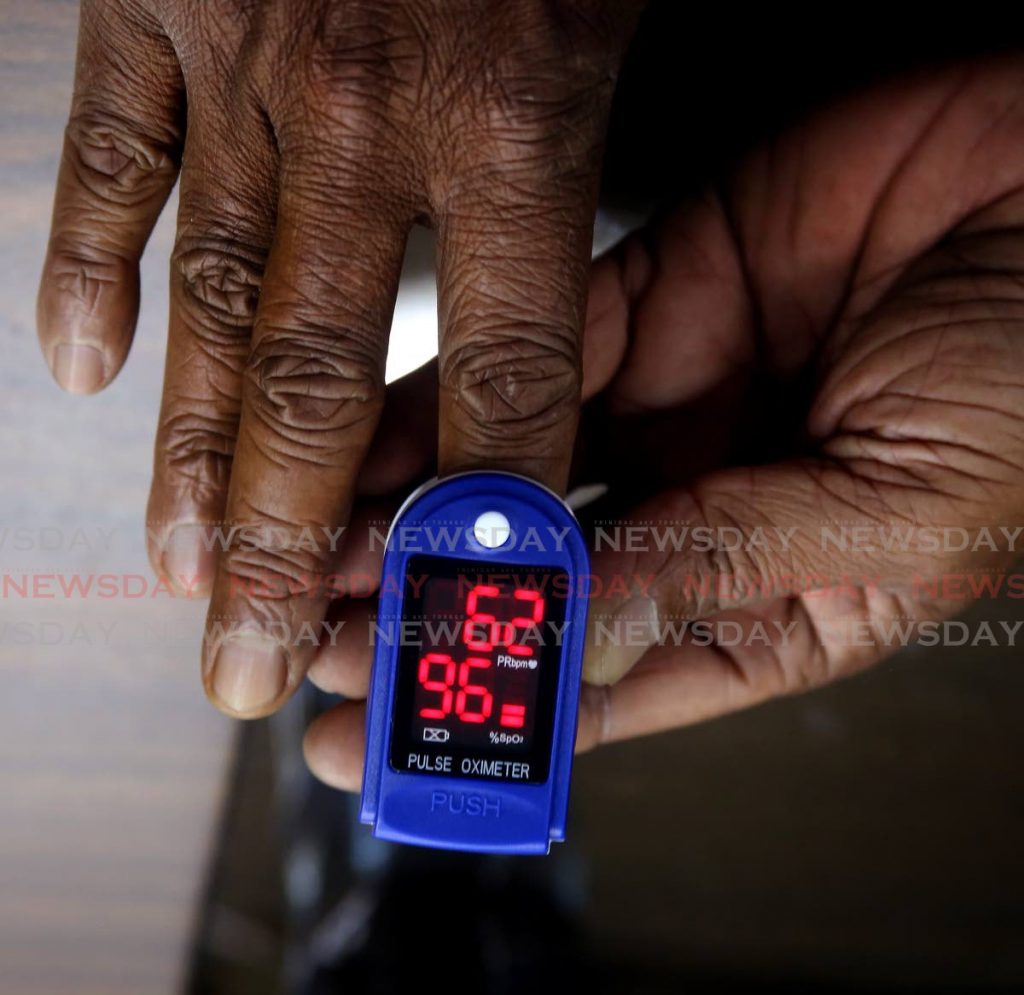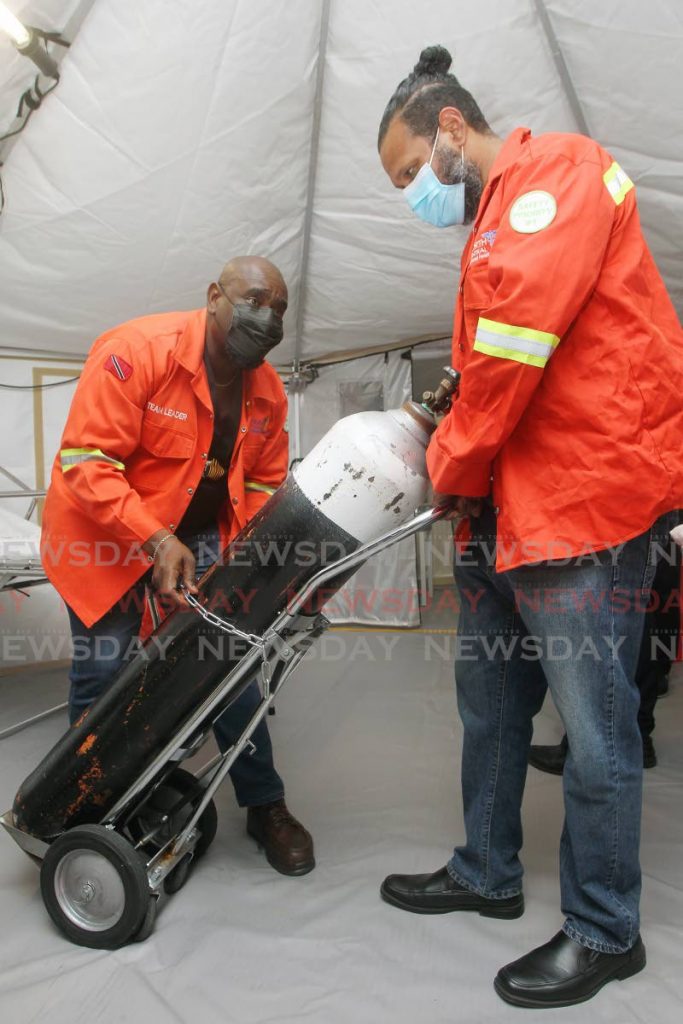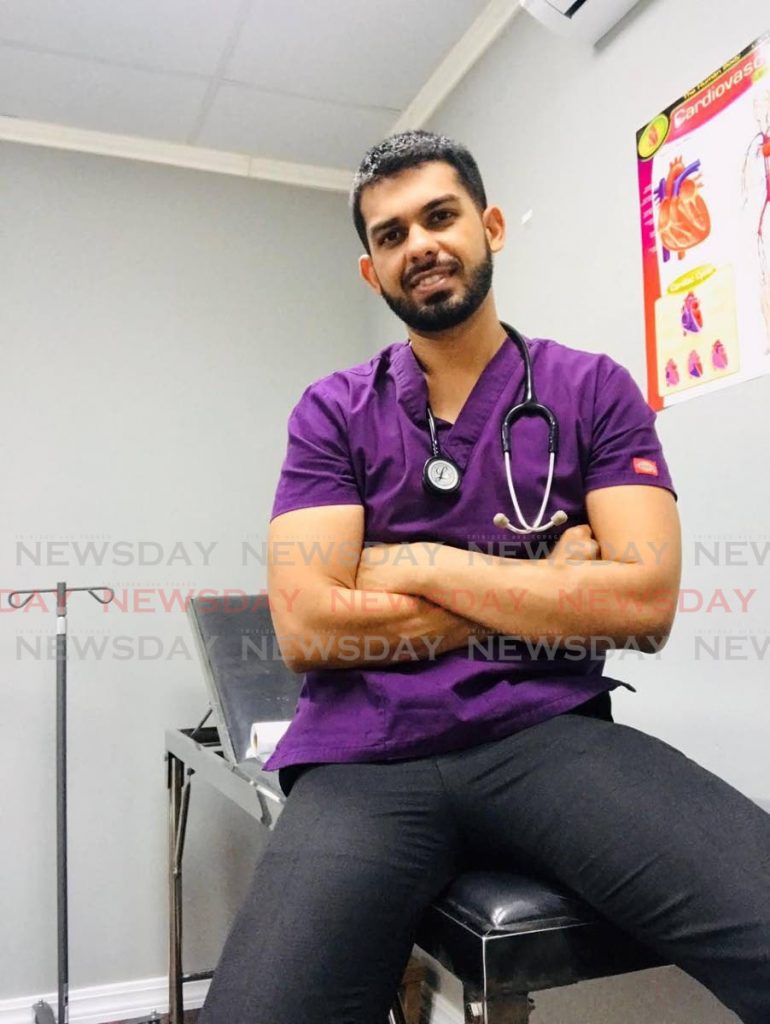Former patients' helpful tips on how to manage covid at home

Audio: Listen to audio clip.
With over 7,000 people in home quarantine and Trinidad and Tobago’s medical resources strained by the current covid19 spike, how are people caring for themselves?
Sunday Newsday spoke to several people who were isolating at home with the virus. They said they were only given a prescription and instructions to call the hospital if they “get worse.” None were given any further instructions on how to look after themselves.
A 39-year-old man from Arima who tested positive and was quarantined at home with his wife said he was fortunate to have friends who were doctors. He believes the medication, remedies, and equipment they recommended enabled him to survive.
“It occurred to me that no official document or information has ever come out telling covid patients suffering at home how to deal with it when you get it. The focus is mainly telling people how to prevent it.
"And there is a stigma if you get it. People assume you were doing something wrong. I simply went to work.”
His symptoms started as slight back pain and a chill. He got tested on the third day after the symptoms persisted and, three days later, he got the call to say he had covid19. He was told if he had problems walking to the bathroom and could not breathe, he should go to the hospital.
Two days later he watched a Ministry of Health virtual press conference explaining that some hospitals were full and others would be soon, so he made a call and got an oximeter and an oxygen tank.
The next day he collapsed while brushing his teeth. His oxygen was low, and for the next eight days, he suffered from laboured breathing, low oxygen levels, and coughing. He never had a fever.
“By the time I fell in the bathroom while brushing my teeth, it was because my oxygen was so dangerously low that if I didn’t have that tank in my house, I would have been brain-damaged or dead.

"I don’t think enough is being put in the public domain. They need to give people the tools and information to help themselves and save their lives.”
He added that an oximeter also saved a friend’s life. His friend was feeling relatively normal when his oxygen levels dropped below 90. The friend called an ambulance and by the time he got to the hospital, the level was at 82.
“Every death I hear bothers me because I know it could have been one of those sick at home. I think a percentage of people dying could have been saved if they had an oximeter, reacted earlier and gone to the hospital.
"Because you only have a small window to react. This thing has you feeling good today and you would go to bed and in the morning you could wake up and can’t breathe.”
With that in mind, he shared some of the suggestions given to him by medical professionals.
First, he suggests patients sleep on their abdomen. This stops the heart and stomach from pressing down on the lungs, allowing them to expand fully. It also helps drain fluid from the back of the lungs.
People can also do deep breathing exercises while sitting or standing; inhale steam to clear the nasal cavity; drink at least one litre of water a day; do not drink anything cold; brush their teeth and gargle with mouthwash to keep the throat sanitised; and buy an oximeter and use it regularly.
While in quarantine he got two check-up calls from the ministry. He also got the number of a nurse who answered his questions whenever he called and was very caring and empathetic.
He said at the time he was fearful of dying in a hospital and never seeing his family again. Even now, when he is almost fully recovered, he fears he will stop breathing as he sleeps.
“One of the major things with people suffering is that they need that support. If you don’t have that support, this virus is very difficult to deal with. You need people to bring food for you because you can’t help yourself and you need people to talk to because your mental health is affected.”
Sleep essential to recovery

Dr Avinash Singh, a doctor who contracted covid19, agreed that both nonpharmacological remedies and caring for one’s mental health is important.
He has worked in the public health system for seven years and has a private office.
He said most covid19 patients being managed at home have mild to moderate symptoms, but they need to be aware of any worsening conditions to know when they need medical attention.
"Being a medical doctor in an emergency department, I have been managing covid patients daily over the last 14 months.
"Unfortunately, I was tested positive for covid19 on May 8, 2021, after experiencing viral-like symptoms, classified as mild disease based on my symptomatology.
"I would like to share numerous nonpharmacological remedies that I practised at home to overcome the virus."
Singh said the most important thing is to follow isolation instructions to prevent spreading the virus to others in the household. He stayed in a room alone and meals were left for him at the door. If he needed to leave the room, he always wore a mask, preferably an N95. He also designated certain utensils to himself, sanitised the washroom after every use, kept his clothing separate from everyone else’s, and made sure his room had enough ventilation.
To monitor themselves, if possible, people should have a pulse oximeter, a blood pressure machine, and a thermometer to check their vitals every day. If a person experiences shortness of breath, chest pains, feeling very unwell together with severely low or high blood pressures, oxygen values of less than 95 per cent, or an elevated heart rate, they should seek medical attention immediately.
“While it may be obvious, but taken for granted, rest is crucial when it comes to recovering smoothly from the covid19 virus. In addition to eight to ten hours of uninterrupted sleep at night, I would have three-to-four-hour-long naps every afternoon. Sleep affects almost every tissue in our bodies from growth and stress hormones to our immune system, appetite, breathing, blood pressure and cardiovascular health.”

People also tend to become dehydrated and fatigued because the body loses a lot of water when battling an infection. They could also have gastrointestinal issues like vomiting and diarrhoea. He, therefore, suggests drinking eight to ten glasses of water every day as well as small amounts of coconut water for electrolyte replenishment.
He said while the loss of taste and/or smell can throw off a person’s appetite, they should still try to have balanced meals with protein, carbohydrates and fats.
“For me, a fruit bowl a day to battle the virus away was consumed every morning, consisting of oranges, watermelon, banana, mangoes and grapes. These natural vitamins and minerals will help to boost our immune system, promote growth and development and assist organs in performing their jobs.”
Singh said in addition to using paracetamol and hydrating to battling his fever, he wore light clothing, had a circulating fan, and showered in lukewarm water, as cold water causes the body to warm up instead of cool down.
He also used honey or put honey in tea to help heal and soothe his sore throat, as honey is better at taming night-time coughing than regular cough suppressants. Gargling with warm salt water has also been shown to break down secretions, reduce swelling and keep the throat clean.
"Some major complications of the virus include secondary bacterial pneumonias (lung infections), acute respiratory distress syndrome and blood clots, to name a few. Every hour or two, make it a habit to sit up, even walk around your room or house if you can, and practise breathing exercises to assist with lung function and halting of these complications. Even forcibly coughing can help with the breakdown of mucus and secretions plugging the airways."
Breathing exercises can simply be taking deep breaths, or people can go to YouTube for more instructions. Also, warm-water baths, a hot beverage or a humidifier can be used to help with nasal congestion.
He said remaining in isolation while managing the virus can negatively affect mental health. Some experience loneliness, anxiety, depression and, in some cases, suicidal ideation. He distracted himself with movies, listening to music, reading and reaching out to friends and family with a message or phone call.
The TT Association of Psychologists has a crisis intervention team to listen and talk to those who believe they need more support.
Whatever the case, Singh encouraged everyone to continue to practise the basic preventative measures that are advised so the people of TT can overcome the pandemic together.


Comments
"Former patients’ helpful tips on how to manage covid at home"